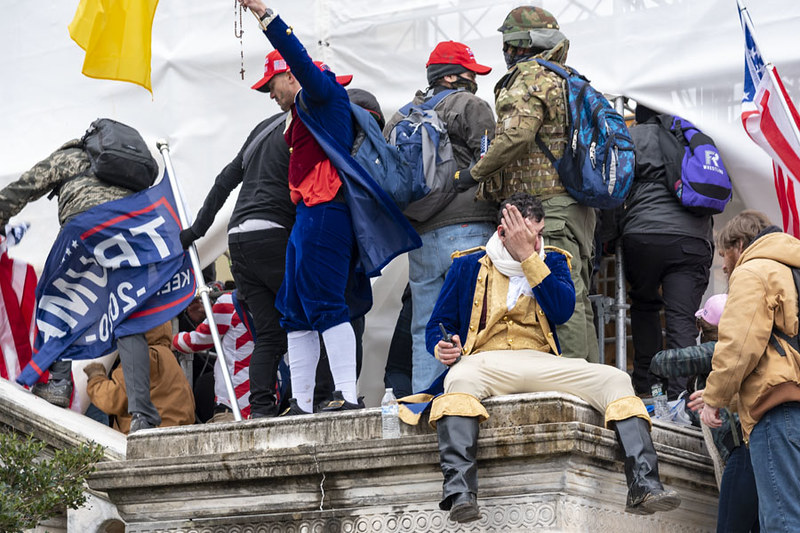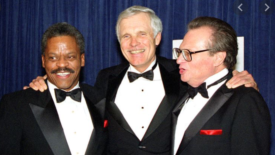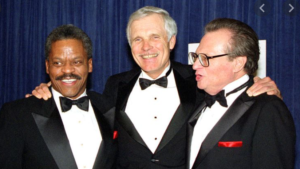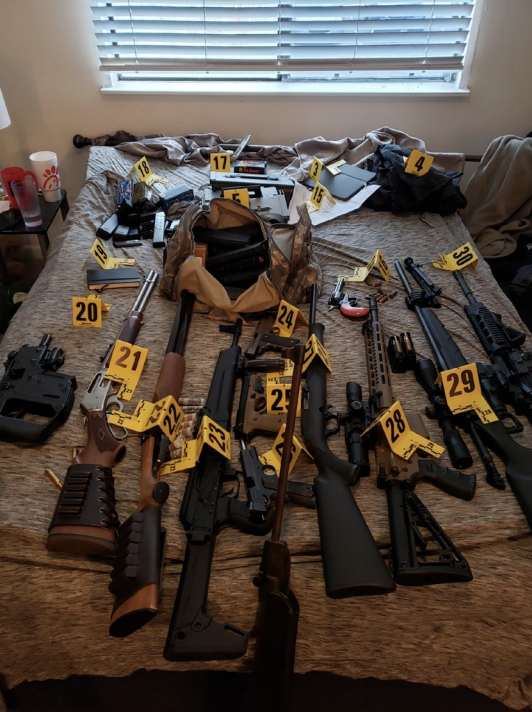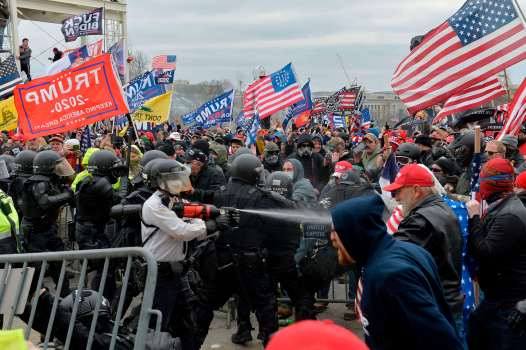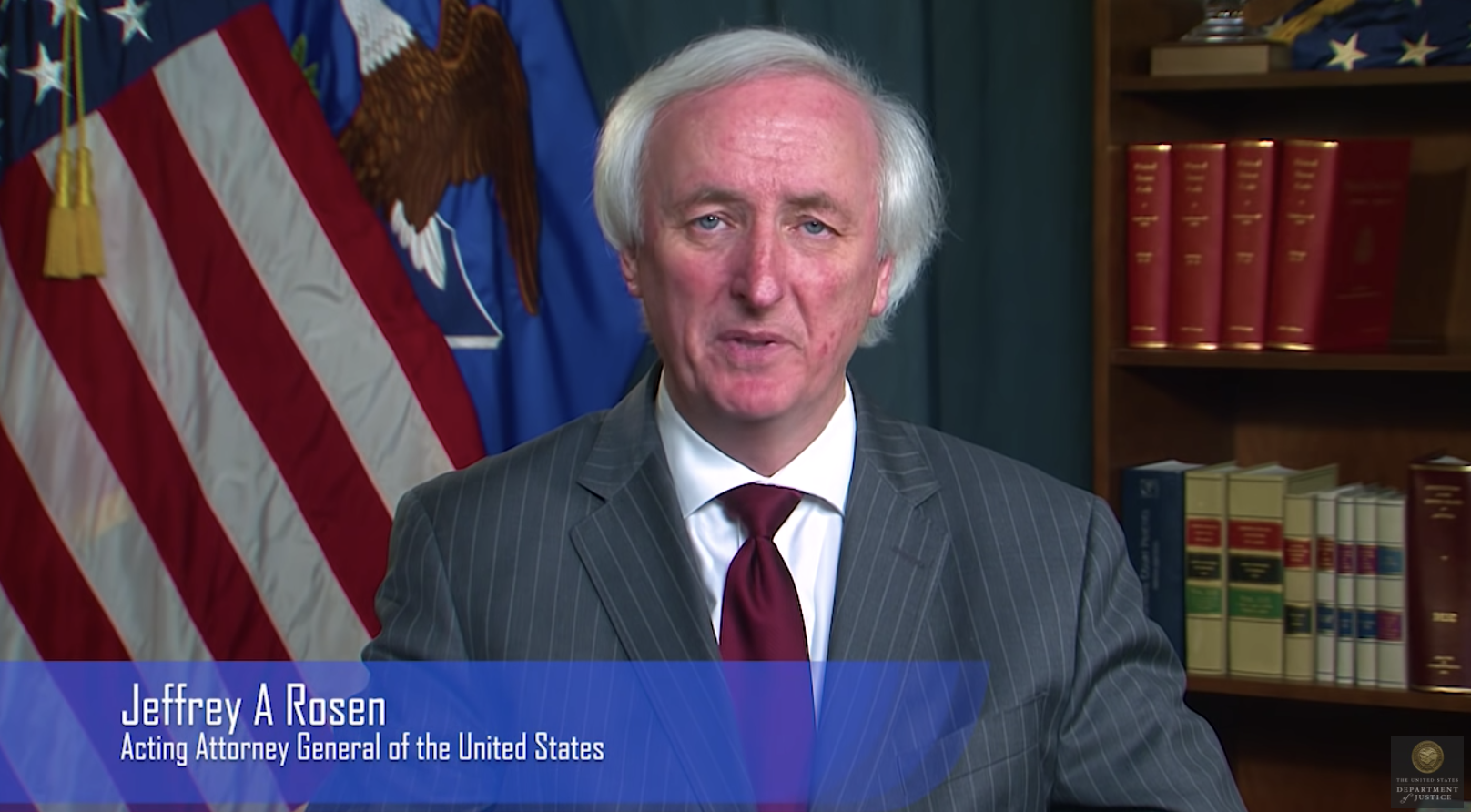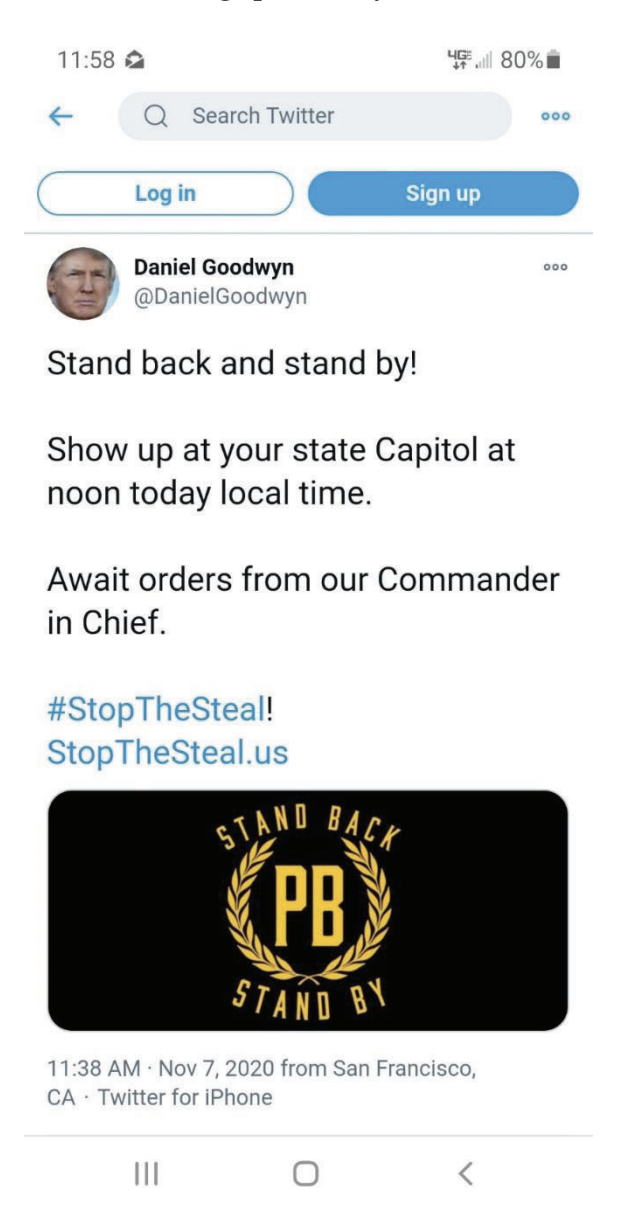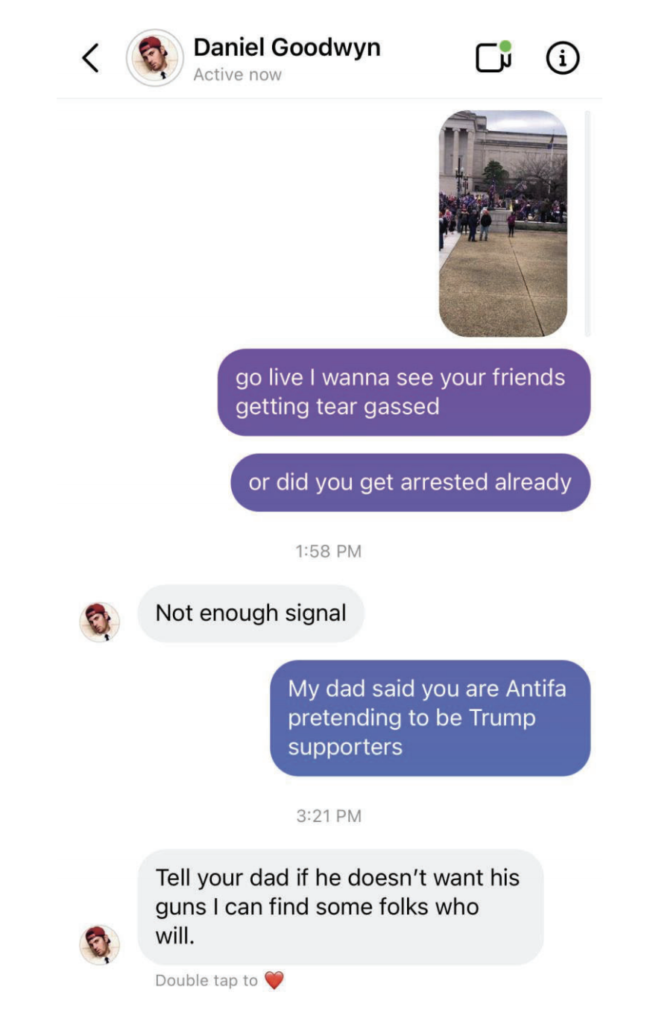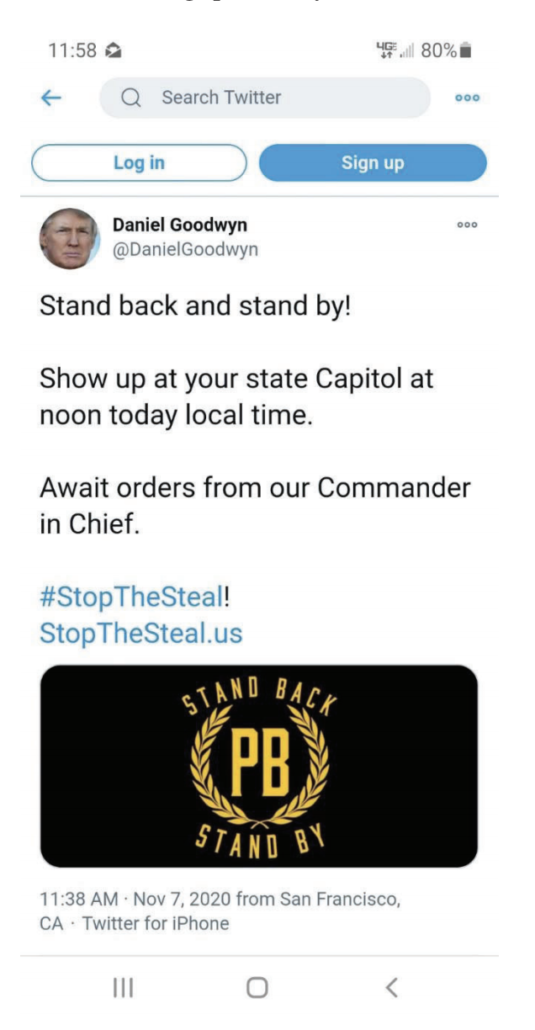Prosecuting the Trump Coup Attempt Compared to the J20 Prosecution
Yesterday, WaPo published a story describing that there’s a debate over whether to charge all the people can identifiably entered the Capitol during the January 6 coup attempt.
Federal law enforcement officials are privately debating whether they should decline to charge some of the individuals who stormed the U.S. Capitol this month — a politically loaded proposition but one alert to the practical concern that hundreds of such cases could swamp the local courthouse.
The internal discussions are in their early stages, and no decisions have been reached about whether to forgo charging some of those who illegally entered the Capitol on Jan. 6, according to multiple people familiar with the discussions.
Justice Department officials have promised a relentless effort to identify and arrest those who stormed the Capitol that day, but internally there is robust back-and-forth about whether charging them all is the best course of action. That debate comes at a time when officials are keenly sensitive that the credibility of the Justice Department and the FBI are at stake in such decisions, given the apparent security and intelligence failures that preceded the riot, these people said, speaking on the condition of anonymity to discuss legal deliberations.
Federal officials estimate that roughly 800 people surged into the building, though they caution that such numbers are imprecise, and the real figure could be 100 people or more in either direction.
Among those roughly 800 people, FBI agents and prosecutors have so far seen a broad mix of behavior — from people dressed for military battle, moving in formation, to wanton vandalism, to simply going with the crowd into the building.
Due to the wide variety of behavior, some federal officials have argued internally that those people who are known only to have committed unlawful entry — and were not engaged in violent, threatening or destructive behavior — should not be charged, according to people familiar with the discussions.
The story explains some of the concerns: If all the evidence that they have shows some sympathetic person entering the Capitol non-violently and then leaving, they might lose. These are [largely white] people with no arrest records. Lots of defendants are likely to invoke Trump to justify their actions. Prosecuting everyone will overwhelm the courts.
Nevertheless, these people said, some in federal law enforcement are concerned that charging people solely with unlawful entry, when they are not known to have committed any other bad acts, could lead to losses if they go to trial.
“If an old man says all he did was walk in and no one tried to stop him, and he walked out and no one tried to stop him, and that’s all we know about what he did, that’s a case we may not win,” one official said.
Another official noted most of those arrested so far have no criminal records.
Meanwhile, defense lawyers for some of those charged are contemplating something akin to a “Trump defense” — that the president or other authority figures gave them permission or invited them to commit an otherwise illegal act.
“If you think of yourself as a soldier doing the bidding of the commander in chief, you don’t try to hide your actions. You assume you will be held up as a hero by the nation,” criminal defense lawyers Teri Kanefield and Mark Reichel wrote last week.
Such a defense might not forestall charges but could be effective at trial or sentencing.
[snip]
There is also a question over whether charging all of the rioters could swamp the federal court system. In 2019, D.C. federal courts recorded only about 430 criminal cases, and fewer than 300 last year, when the legal system slowed significantly due to the pandemic. Many of those cases, however, had multiple defendants.
I’m very sympathetic with the last issue: while I’d love to use Trump’s crimes as an excuse to expand the number of DC District Judges, there will always be a bottleneck to present anything to a grand jury, because of COVID. I’m unworried that a bunch of people will get a misdemeanor record for participating in a coup attempt.
I think the expressed worries about Trump suggest that someone at DOJ or FBI doesn’t yet realize that Trump must be a part of this, even to hold the more dangerous insurrectionists to account. And if I had to choose whether DC’s prosecutors focus on making that case — that Trump’s efforts to undermine legitimate election results in multiple states and Rudy’s coordination with members of Congress tie directly to the mob they used to delay the certification of the vote — or charging 400 of 800 people with misdemeanors, I say focus on Trump and his co-conspirators.
I think DOJ is right that they will lose some of these cases (all the more so if, as the story suggests might be one way for DOJ to deal with the surge, the trials were moved out of DC). It turns out white supremacists sometimes get a more sympathetic take from jurors than black people do.
That said, I want to consider that concern in light of a comparison someone made: the J20 protestors arrested on the day of former President Trump’s inauguration. While a handful of them pled guilty early, many of the other cases were ultimately thrown out.
Even ignoring the context of Trump’s attempt to use the mob in an effort to steal the election, two things distinguish the two events.
First, as one of the people arrested in 2017 described last week, cops immediately arrested hundreds of people at the Trump protests, both those who had committed vandalism and those who did not.
On Jan. 20, 2017, around the time Trump was sworn in, D.C. police cornered a couple hundred people — largely protesters but also bystanders, journalists and legal observers — onto a street corner far from the White House or the Capitol grounds. The justification for the mass arrests was that a handful of protesters in the crowd had destroyed the windows of several businesses, including a Starbucks and Bank of America branch, and damaged private vehicles parked on the street. I was covering the protest as a freelance reporter and, after catching an eyeful of pepper spray, I got caught up in the mass arrest while trying to leave. We spent the night in jail; police confiscated our phones.
At first, I figured we’d all be charged with contestable misdemeanors. Instead, the U.S. attorney’s office conjured up a radical conspiracy theory that rested on defining the protest march as a black bloc riot in which every alleged participant was guilty for all property damage, ultimately charging more than 200 people. Our indictments referenced protest chants captured on video as evidence. Although my actions, as alleged in the indictment against me, consisted of walking and wearing dark clothing, I was charged with more than half a dozen felony riot and destruction charges. It’s hard to convey the terror I felt, especially as Trump loyalists cheered on my prosecution because I was a journalist, gleefully using racial slurs.
Almost no one was arrested at the Capitol, meaning everyone is having to be identified after the fact, largely from social media and videos of the event. It appears that DOJ is already conducting a kind of triage process, focusing on those who were obviously violent or ties to a more organized group. So the arrests are already selecting for prosecutable behavior.
Also, by comparison with the Trump protestors who were arrested on a public street, merely entering into the Capitol building in an attempt to stop the vote count amounts to two crimes, with which most current defendants are being charged:
18 U.S.C. § 1752(a), which makes it a crime to (1) knowingly enter or remain in any restricted building or grounds without lawful authority to do; (2) knowingly, and with intent to impede or disrupt the orderly conduct of Government business or official functions, engage in disorderly or disruptive conduct in, or within such proximity to, any restricted building or grounds when, or so that, such conduct, in fact, impedes or disrupts the orderly conduct of Government business or official functions; (3) knowingly, and with the intent to impede or disrupt the orderly conduct of Government business or official functions, obstruct or impede ingress or egress to or from any restricted building or grounds; or (4) knowingly engage in any act of physical violence against any person or property in any restricted building or grounds; or attempts or conspires to do so. For purposes of Section 1752 of Title 18, a restricted building includes a posted, cordoned off, or otherwise restricted area of a building or grounds where the President or other person protected by the Secret Service is or will be temporarily visiting; or any building or grounds so restricted in conjunction with an event designated as a special event of national significance; and
40 U.S.C. § 5104(e)(2)(D), which makes it a crime for an individual or group of individuals to willfully and knowingly (A) enter or remain on the floor of either House of Congress or in any cloakroom or lobby adjacent to that floor, in the Rayburn Room of the House of Representatives, or in the Marble Room of the Senate, unless authorized to do so pursuant to rules adopted, or an authorization given, by that House; (B) enter or remain in the gallery of either House of Congress in violation of rules governing admission to the gallery adopted by that House or pursuant to an authorization given by that House; (C) with the intent to disrupt the orderly conduct of official business, enter or remain in a room in any of the Capitol Buildings set aside or designated for the use of— (i) either House of Congress or a Member, committee, officer, or employee of Congress, or either House of Congress; or (ii) the Library of Congress; (D) utter loud, threatening, or abusive language, or engage in disorderly or disruptive conduct, at any place in the Grounds or in any of the Capitol Buildings with the intent to impede, disrupt, or disturb the orderly conduct of a session of Congress or either House of Congress, or the orderly conduct in that building of a hearing before, or any deliberations of, a committee of Congress or either House of Congress; (E) obstruct, or impede passage through or within, the Grounds or any of the Capitol Buildings; (F) engage in an act of physical violence in the Grounds or any of the Capitol Buildings; or (G) parade, demonstrate, or picket in any of the Capitol Buildings.
The former, unless done with a weapon, is just a misdemeanor, what most of the 400 people who might not otherwise be charged would be charged with. But as noted, DOJ (probably correctly) believes that some people will be able to argue they thought they were permitted in, especially if they claim to have operated on Trump’s orders.
There are two other lessons in the J20 case, though, both of which offer important lessons here.
First, in an attempt to claim that the protest was planned to be violent, DOJ relied on a video from Project Veritas which was — unsurprisingly — edited to be misleading. But they withheld the most exculpatory parts.
While the government used some recordings from the right-wing group — which has frequently been found to selectively edit its videos — in Inauguration Day cases that went to trial, a judge later found that prosecutors were wrong not to disclose an additional cache of videos and audio recordings in their possession. The judge also ruled that prosecutors violated evidence disclosure rules in not revealing video edits that the government made.
[snip]
Defense lawyers also complained that the government originally didn’t disclose Project Veritas as the source of the recordings, and that the defense lawyers had to piece together the connection through their own research. Speaking at Friday’s hearing, Elizabeth Lagesse, one of the defendants whose case was dropped, questioned whether the secrecy surrounding the videos was the result of an arrangement between the government and Project Veritas.
The judge then asked Goodhand if there was any agreement to keep Project Veritas’s identity secret. Goodhand said he didn’t know. Morin ordered him to file a supplement to the government’s court papers with an answer.
The government will also have to rely on unofficial videos to prosecute the insurrectionists. While there’s little reason to believe they’re intentionally edited (in many cases they’re not edited at all), there will be a provenance issue.
More importantly, DOJ tried, but failed, to get an expansive warrant for the website of the organization that planned the protest, partly an effort to get the IP address of everyone who accessed the site.
DOJ initially demanded that DreamHost turn over nearly 1.3 IP addresses on visitors to the site. Millions of visitors—activists, reporters, or anyone who just wanted to check out the site—would have records of their visits turned over to the government. The warrant also sought production of all emails associated with the account and unpublished content, like draft blog posts and photos.
The new warrant parameters exclude most visitor logs from the demand, set a temporal limit for records from July 1, 2016 to January 20, 2017, and also withdraw the demand for unpublished content, like draft blog posts and photos. This was a sensible response on DOJ’s part—both legally and politically.
But the new warrant is not without its flaws. First, it’s not clear from either the warrant itself or the facts of the case whether DOJ is ordering DreamHost to turn over information on one account or multiple accounts. At a minimum, DOJ should be required to specify which accounts are subject to the order. More fundamentally, DOJ is still investigating a website that was dedicated to organizing and planning political dissent and protest. That is activity at the heart of the First Amendment’s protection. If, as DOJ claims, it has no interest in encroaching on protected political activity and organizing, then it should allow a third-party—like a judge, a special master, or a taint team—to review the information produced by DreamHost before it is turned over to the government. Anything less threatens to cast a further shadow on the legitimacy of this investigation.
Again, I highly doubt DOJ would go this aggressively after the groups as groups. Indeed, at least from public reports, DOJ has obtained very little legal process yet, and what they’ve gotten has been targeted at individuals already arrested. (Though there are reports that they’re getting location data from the cells in and around the Capitol.)
Because of the difference I’ve already laid out — that violent entry into the Capitol is a crime — DOJ won’t be forced to try to tie all the rioters together in one intent (though, again, Trump offers them that and they should use it). So long as they can show the violence and illegal entry should have been obvious, they won’t need to prove that everyone came in with the intent to cause damage.
Still, this all comes back to the context — a context that report after report seems to suggest DOJ is not vigorously pursuing yet.
To the extent a mob descended on the Capitol to prevent the certification of the vote — and defendant after defendant posted evidence to their social media showing that’s what they understood they were doing — then you have a conspiracy.
Ironically, then, Trump ended his presidency providing the legal case his DOJ tried to trump up on its first day.

